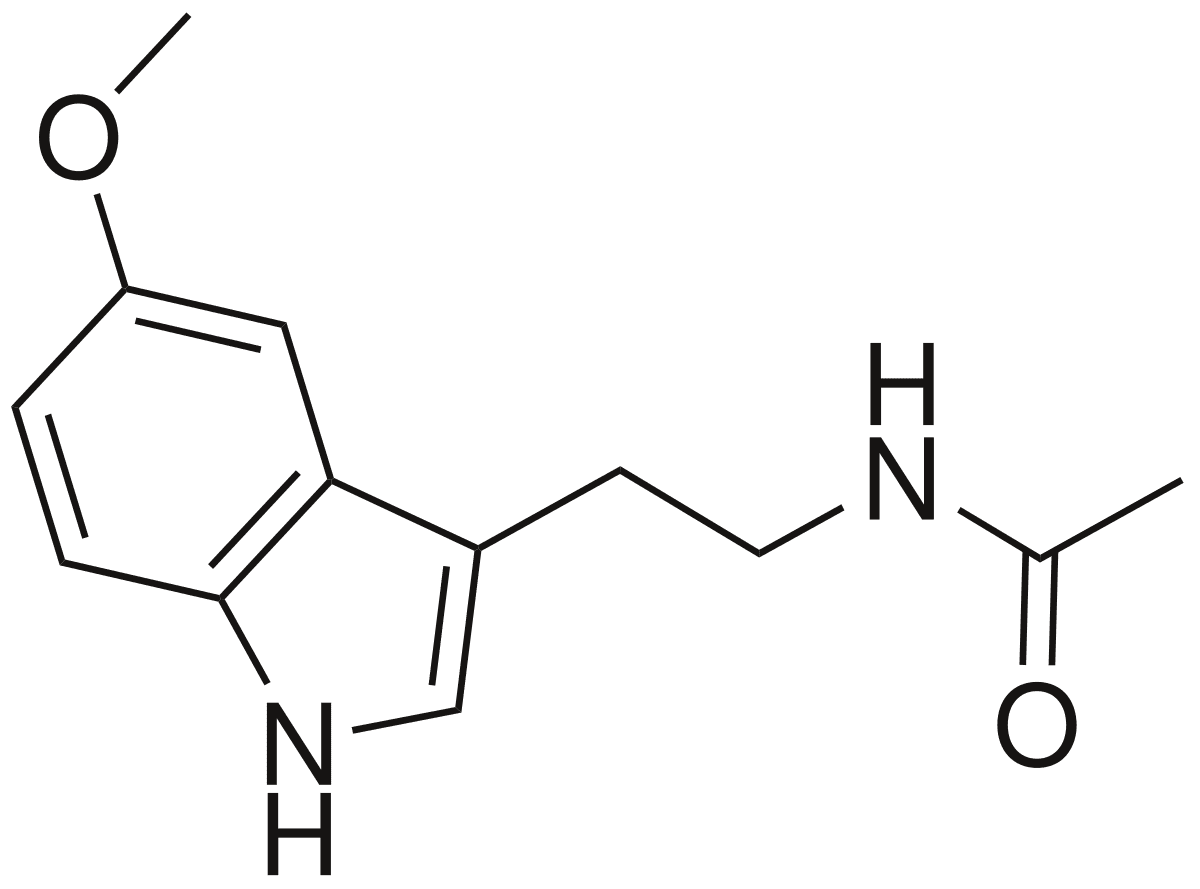The Role of Melatonin in Enhancing Sleep
Can melatonin help many individuals dealing with sleep issues and help them stay asleep longer and feel refreshed in the morning?
What Is Melatonin?
How often do you have trouble sleeping at night? Do you constantly toss and turn at night, which makes you stay awake even longer? Or do you feel continually stressed, and you feel more tired than before, and that is affecting your routine? Many people can fall asleep instantly when it comes to getting a good night’s sleep. However, when environmental factors like stress and insomnia start to affect the body, while causing many people to deal with restless sleep and symptoms of fatigue that affect their routine. Hence, why are many people taking a supplement known as melatonin to get a full night’s sleep? But what is melatonin, and how can it help improve sleep quality? Located and secreted in the pineal gland, melatonin is a hormone primarily synthesized to regulate the body’s sleep and wake cycle. (Savage et al., 2024) This hormone helps many people fall asleep, stay asleep, and wake up refreshed. At the same time, it is an antioxidant that dampens chronic inflammation and helps with the immune system. We associate with certified medical providers who inform our patients of the effects of melatonin as a supplement to reduce overlapping risk profiles affecting sleep quality. While asking important questions to our associated medical providers, we advise patients to incorporate various techniques to stay asleep longer and utilize melatonin when needed. Dr. Alex Jimenez, D.C., envisions this information as an academic service. Disclaimer.
Its Benefits
Melatonin is a hormone that is produced from the body’s pineal gland, and it can naturally command the circannual rhythm as its synthesis and exert its effect on the body’s biological rhythm and sleep initiation. (Boutin et al., 2023) There are many benefits that melatonin provides as it can:
- Lengthen total sleep time
- Reduce seasonal depression
- Increase human growth hormone levels
- Help with eye health
- Treat GERD
However, many people have noticed that melatonin has hypnotic “effects” that are exerted through thermoregulatory mechanisms. Melatonin helps the body lower its core temperature, reduce arousal, and increase sleep propensity (Dawson & Encel, 1993). This allows many people dealing with sleep disorders to have a good night’s rest and feel better when waking up.
Eating Right To Feel Better- Video
How Melatonin Improves Sleep
When it comes to melatonin and improving sleep quality, many people with sleep disorders like insomnia, CRSD (Circadian Rhythm Sleep Disorder, and DSPD (Delayed Sleep Phase Disorder) use melatonin in pill and gummy form to administer the beneficial properties of improving sleep initiation and maintenance. (Cruz-Sanabria et al., 2023) At the same time, melatonin, especially exogenous melatonin, can be prescribed by a doctor or taken as a supplement in pill, tablet, or gummy form and has been the most frequently requested as a non-prescription sleep pain to promote total sleep time. (Costello et al., 2014) However, even though melatonin is used as a dietary supplement, it has to be regulated to what dosage the individual takes to reduce adverse effects. (Tuft et al., 2023) This is because taking too much melatonin can lead to the development of chronic conditions. If a person is taking medication, it can cause overlapping risk profiles for the individuals. Luckily, when it comes to reducing sleep disorders, taking melatonin for at least 30 minutes to an hour before bed can allow the body to relax and help kickstart the sleep-wake cycle for individuals to get that full night’s rest they deserve.
References
Boutin, J. A., Kennaway, D. J., & Jockers, R. (2023). Melatonin: Facts, Extrapolations and Clinical Trials. Biomolecules, 13(6). https://doi.org/10.3390/biom13060943
Costello, R. B., Lentino, C. V., Boyd, C. C., O’Connell, M. L., Crawford, C. C., Sprengel, M. L., & Deuster, P. A. (2014). The effectiveness of melatonin for promoting healthy sleep: a rapid evidence assessment of the literature. Nutr J, 13, 106. https://doi.org/10.1186/1475-2891-13-106
Cruz-Sanabria, F., Carmassi, C., Bruno, S., Bazzani, A., Carli, M., Scarselli, M., & Faraguna, U. (2023). Melatonin as a Chronobiotic with Sleep-promoting Properties. Curr Neuropharmacol, 21(4), 951-987. https://doi.org/10.2174/1570159X20666220217152617
Dawson, D., & Encel, N. (1993). Melatonin and sleep in humans. Journal of Pineal Research, 15(1), 1-12. https://doi.org/10.1111/j.1600-079x.1993.tb00503.x
Savage, R. A., Zafar, N., Yohannan, S., & Miller, J. M. M. (2024). Melatonin. In StatPearls. https://www.ncbi.nlm.nih.gov/pubmed/30521244
Tuft, C., Matar, E., Menczel Schrire, Z., Grunstein, R. R., Yee, B. J., & Hoyos, C. M. (2023). Current Insights into the Risks of Using Melatonin as a Treatment for Sleep Disorders in Older Adults. Clin Interv Aging, 18, 49-59. https://doi.org/10.2147/CIA.S361519
Disclaimer
Post Disclaimer
General Disclaimer, Licenses and Board Certifications *
Professional Scope of Practice *
The information herein on "The Role of Melatonin in Enhancing Sleep" is not intended to replace a one-on-one relationship with a qualified health care professional or licensed physician and is not medical advice. We encourage you to make healthcare decisions based on your research and partnership with a qualified healthcare professional.
Blog Information & Scope Discussions
Welcome to El Paso's Premier Wellness and Injury Care Clinic & Wellness Blog, where Dr. Alex Jimenez, DC, FNP-C, a Multi-State board-certified Family Practice Nurse Practitioner (FNP-BC) and Chiropractor (DC), presents insights on how our multidisciplinary team is dedicated to holistic healing and personalized care. Our practice aligns with evidence-based treatment protocols inspired by integrative medicine principles, similar to those on this site and on our family practice-based chiromed.com site, focusing on naturally restoring health for patients of all ages.
Our areas of multidisciplinary practice include Wellness & Nutrition, Chronic Pain, Personal Injury, Auto Accident Care, Work Injuries, Back Injury, Low Back Pain, Neck Pain, Migraine Headaches, Sports Injuries, Severe Sciatica, Scoliosis, Complex Herniated Discs, Fibromyalgia, Chronic Pain, Complex Injuries, Stress Management, Functional Medicine Treatments, and in-scope care protocols.
Our information scope is multidisciplinary, focusing on musculoskeletal and physical medicine, wellness, contributing etiological viscerosomatic disturbances within clinical presentations, associated somato-visceral reflex clinical dynamics, subluxation complexes, sensitive health issues, and functional medicine articles, topics, and discussions.
We provide and facilitate clinical collaboration with specialists across disciplines. Each specialist is governed by their professional scope of practice and licensure jurisdiction. We use functional health & wellness protocols to treat and support care for musculoskeletal injuries or disorders.
Our videos, posts, topics, and insights address clinical matters and issues that are directly or indirectly related to our clinical scope of practice.
Our office has made a reasonable effort to provide supportive citations and has identified relevant research studies that support our posts. We provide copies of supporting research studies upon request to regulatory boards and the public.
We understand that we cover matters that require an additional explanation of how they may assist in a particular care plan or treatment protocol; therefore, to discuss the subject matter above further, please feel free to ask Dr. Alex Jimenez, DC, APRN, FNP-BC, or contact us at 915-850-0900.
We are here to help you and your family.
Blessings
Dr. Alex Jimenez DC, MSACP, APRN, FNP-BC*, CCST, IFMCP, CFMP, ATN
email: [email protected]
Multidisciplinary Licensing & Board Certifications:
Licensed as a Doctor of Chiropractic (DC) in Texas & New Mexico*
Texas DC License #: TX5807, Verified: TX5807
New Mexico DC License #: NM-DC2182, Verified: NM-DC2182
Multi-State Advanced Practice Registered Nurse (APRN*) in Texas & Multi-States
Multi-state Compact APRN License by Endorsement (42 States)
Texas APRN License #: 1191402, Verified: 1191402 *
Florida APRN License #: 11043890, Verified: APRN11043890 *
Colorado License #: C-APN.0105610-C-NP, Verified: C-APN.0105610-C-NP
New York License #: N25929, Verified N25929
License Verification Link: Nursys License Verifier
* Prescriptive Authority Authorized
ANCC FNP-BC: Board Certified Nurse Practitioner*
Compact Status: Multi-State License: Authorized to Practice in 40 States*
Graduate with Honors: ICHS: MSN-FNP (Family Nurse Practitioner Program)
Degree Granted. Master's in Family Practice MSN Diploma (Cum Laude)
Dr. Alex Jimenez, DC, APRN, FNP-BC*, CFMP, IFMCP, ATN, CCST
My Digital Business Card
Licenses and Board Certifications:
DC: Doctor of Chiropractic
APRN: Advanced Practice Registered Nurse
FNP-BC: Family Practice Specialization (Multi-State Board Certified)
RN: Registered Nurse (Multi-State Compact License)
CFMP: Certified Functional Medicine Provider
MSN-FNP: Master of Science in Family Practice Medicine
MSACP: Master of Science in Advanced Clinical Practice
IFMCP: Institute of Functional Medicine
CCST: Certified Chiropractic Spinal Trauma
ATN: Advanced Translational Neutrogenomics
Memberships & Associations:
TCA: Texas Chiropractic Association: Member ID: 104311
AANP: American Association of Nurse Practitioners: Member ID: 2198960
ANA: American Nurse Association: Member ID: 06458222 (District TX01)
TNA: Texas Nurse Association: Member ID: 06458222
NPI: 1205907805
| Primary Taxonomy | Selected Taxonomy | State | License Number |
|---|---|---|---|
| No | 111N00000X - Chiropractor | NM | DC2182 |
| Yes | 111N00000X - Chiropractor | TX | DC5807 |
| Yes | 363LF0000X - Nurse Practitioner - Family | TX | 1191402 |
| Yes | 363LF0000X - Nurse Practitioner - Family | FL | 11043890 |
| Yes | 363LF0000X - Nurse Practitioner - Family | CO | C-APN.0105610-C-NP |
| Yes | 363LF0000X - Nurse Practitioner - Family | NY | N25929 |
Dr. Alex Jimenez, DC, APRN, FNP-BC*, CFMP, IFMCP, ATN, CCST
My Digital Business Card


